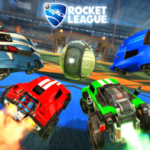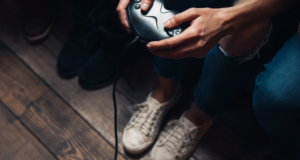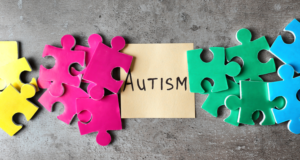A Guide On How To Overcome Rocket League Addiction

Rocket League is a vehicular soccer game that was developed and released by Psyonix in July 2015. Since then the game has always had a stable player base of 30,000 players a month on average with an all-time high of 142,000 active players. Despite the game not having the overwhelming numbers that we’re used to video games having these days, a loyal fanbase of people sometimes shows higher rates of addiction amongst a small niche of players. Hence why today we are going to be running through how to overcome an addiction to Rocket League.
Content
What Makes Rocket League So Addictive?
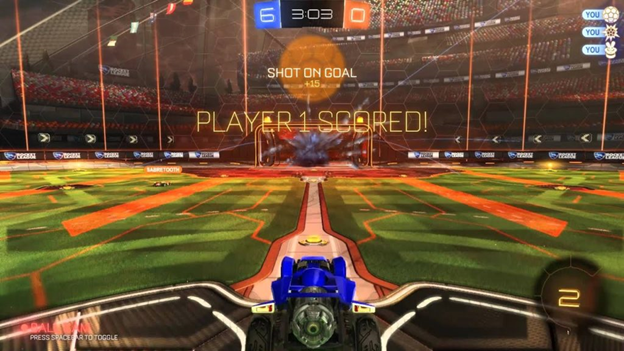
Rocket League is the second iteration of the game with the first being called “Supersonic Acrobatic Rocket-Powered Battle-Cars” which makes sense why they went for a shorter, sweeter and more marketable name upon their second release. So the game has been around for a long time but they aren’t the first to develop this concept of making normal everyday sports into an extreme video game version.
In order to better understand your addiction, we should look at some of the most addictive factors of the game. Most gamers who struggle with addiction to Rocket League don’t pay much attention to why they love the game so much. Their only focus is on playing as much as they can in order to get the most out of it. So here are some of the addictive qualities of Rocket League.
Competition
For those who love the adrenaline-fueled rush of competition, Rocket League provides a safe opportunity for gamers to experience it. Players can experience back and forth, nail-biting matches against skilled opponents to earn points in order to rank up. Ranks within the game provide many with an incentive to improve. The lowest rank being Bronze and the highest Grand Champion it takes hours of practice, dedication and grinding out matches to reach this skill level. Obviously, this investment of time and energy into the game doesn’t come without the risk of addiction.
For the average Diamond player, it takes 800 – 1200 hours to reach this skill level, with some never being able to achieve it at all. The take-home here is that the sheer investment to be considered successful in the game makes it difficult to draw the line between a skilled hobbyist or a Rocket League addict. Another addictive aspect of the competitive environment that we previously mentioned was the love for adrenaline rich intense gameplay.
As players are probably familiar with, the game only ends when the time is up and the ball touches the floor. Thus, this makes for incredible comebacks and stressful victories that really illicit relief when they’re over. The adrenaline rush of competition that can be experienced from the safety of your desk is what many gamers find so addictive about games such as this. Why would they want to risk competing in something that requires any actual risk when they can get the same satisfaction from playing video games.
Social Interaction
Games such as Rocket League are rarely played alone as they are much more enjoyable to play with friends. Not to mention it helps to have a friend that you can rely on when trying to climb through the ranks as opposed to the random teammates that matchmaking has to offer.
Humans are social creatures and therefore it is essential to have social interaction to remain healthy. For many, video games offer a safe and anonymous opportunity to meet and interact with like-minded individuals. Online gaming in recent years has become an important part of many people’s social lives which has shown to have its benefits.
However, problems begin to arise when interactions through video games become the only form of social interaction a person gets. If hopping on to play Rocket League with friends starts to take priority over meeting and interacting with real-life friends then this can be detrimental to the gamer’s health. For one, their need for social interaction through Rocket League makes them more susceptible to the development of video game addiction and secondly, it can stunt their communication skills that need to be developed through face to face interactions.
Most video game addiction treatments explain that it’s important to have friends and family that can form a support network to help along the individual’s journey to recovery.
Measurable Growth
A crucial part of what attracts so many people to gaming is the need to see measurable growth. It is an innate human desire to want to overcome challenges and feel accomplishment. For centuries it is what people have been doing to bring society to where it is today. Although we believe that their intentions are not malicious, video games can interfere with people’s motivations to work hard to overcome real-life obstacles.
Games such as Rocket League do a great job of roping players in with a game that has a simple objective with mechanics that are a minute to learn but a lifetime to master. From the get-go, players can have fun trying to score goals all the while observing the success they receive as their skills within the game improve. Players spend hours trying to master the movement, air dribbles and rotations in order to become better at the game and feel that gratification of victory.
Sadly, the effects of this have been linked to depression as players who have invested copious hours into video games but have no real life skills or achievements exacerbate their feelings of hopelessness. Ultimately they turn to video games to make them feel good and accomplished again trapping them in their cycle of addiction. This isn’t the case for all who struggle with video game addiction but gaming has been shown to disrupt our triumph circuit, responsible for motivation towards accomplishing long term goals.
Symptoms Of Rocket League Addiction
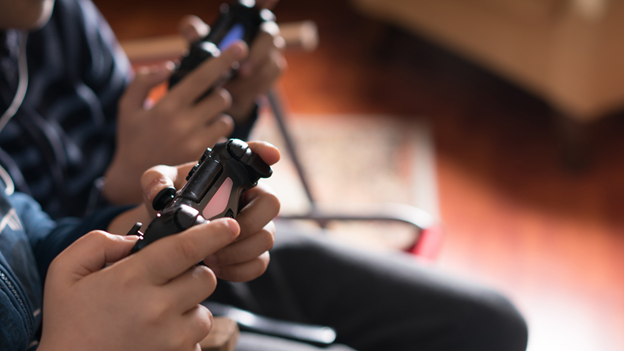
The symptoms of Rocket League addiction will manifest in the same way that most video game addictions do. The World Health Organisation released criteria for video game addiction based on their statistical data and findings on the disorder. The data has been significant enough for this criteria that it has been included in various diagnostic manuals used by mental health professionals to diagnose video game addiction. Video game addiction has been recognised by the WHO as an official mental health disorder and added to the DSM-5 the Diagnostic and Statistical Manual of Mental Disorders.
The criteria explain that a person with video game addiction will display impairment over a 12 month period across different areas of functioning. Things such as social, education and occupational functioning will experience a decline due to excessive gaming. In order to give a better understanding of what to look for in a Rocket League addiction here are some of the most common symptoms of video game addiction:
- Sleep problems and insomnia
- Neglecting important responsibilities to play Rocket League
- Decline in mental health and general mood
- Loss of interest in activities except for Rocket League
- Damaged personal relationships
- Lying to others to conceal problematic gaming habits
- Obsessive thinking about Rocket League
- Decline in performance at school/work
- Lack of energy and motivation
- Repetitive strain injuries
If you have been experiencing any of the following symptoms due to excessive gaming then it might be time to seek help. Many of these symptoms can be caused by underlying comorbid conditions so it’s always nice to consult a medical professional to rule these out. Video game addiction self-help programs are perfectly suitable to work alongside any other professional help you might be receiving.
Rocket League Addiction Treatments
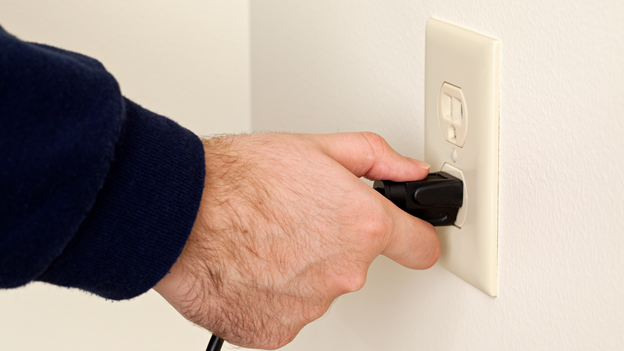
Rocket League was voted one of the most addictive games to date based on an analysis of the keyword “addictive” within Metacritic reviews. Despite there being appearances from many of the usual suspects amongst the top 5 such as Stardew Valley and League of Legends, Rocket League had blown them all out of the water scoring a 14% to their measly 7%.
With this in mind, it’s safe to say that many individuals will have attempted to quit or cut down but may not have been able to stay committed to their decision. Without any direction or understanding of your addiction, it can be difficult to immediately drop video games hence why we are going to explain some of the best-proven video game addiction treatments.
Take a Video Game Detox
Taking a video game detox simply means cutting video games out for an extended period of time. Research has shown that 90-days is the appropriate amount of time away from gaming to allow any chemical alterations in our brain’s reward centre to restore back to normal. Video games interfere with the natural levels of dopamine in our brain hence why we experience cravings when we aren’t gaming and a whole number of withdrawal symptoms such as headaches and lethargy.
When we cut video games out for 90-days it means all video games and most video game related content. The detox would make no sense if we substituted Rocket League for another game just to get our fix. So there must be no video games for 90-days. Many people ask if they can watch streams and YouTube videos of their favourite games but we strongly advise against this as it will only increase the temptation of wanting to play which can lead to relapse.
Understandably going cold turkey right away will be difficult so here are some precautions that we can take in order to make the process easier. To make it harder for us to play video games we need to increase the barrier to entry. As it stands we can turn on our gaming console or PC and load up Rocket League within a few seconds and start playing without even thinking about it. This is known as a low barrier to entry. We must make this more difficult by trying some of the following so that we can disrupt our gaming habits:
- Unplug your PC or gaming console during your detox
- Delete or hide the Rocket League shortcut from your PC
- Lend your gaming console to a friend or family member if you cant handle self-imposed limits
- Put controllers out of reach
- Uninstall the game altogether
By putting these precautions in place despite how obscure they might seem they work to disrupt our gaming habits. Think of it as buying ourselves some time to think rationally and make healthier decisions before we resort to gaming again.
Gaming in moderation later. Some people may find that their gaming problem is not impeding their lifestyle but they would like to cut down a bit to increase their productivity. Others may find a detox almost impossible. Hence why we also explain how to play in moderation in another article. So give it a try.
Find Alternative Activities to Rocket League
Once we begin a video game detox, gamers in recovery are left with loads of free time. As a natural response, most try to kill their newfound free time by aimlessly browsing the internet. The problem is it’s simply too much time to kill and it ultimately results in boredom and frustration which leads to relapse. We explain to all of our members that they have to make a shift from killing their free time to investing it into other activities to avoid boredom.
A little bit of do-nothing time is normal and healthy but trying to kill every waking moment without video games is simply not sustainable. Gaming is a unique activity that satisfies many different areas of our lives. They provide social interaction, measurable growth and mental stimulation and many others use them to relax in the evening to get away from stresses in their life.
With full transparency, we can say that there is no one activity that can satisfy these different areas but we can find healthier alternatives for each aspect that gaming used to occupy. For social interaction we can join after school clubs, local sports teams, improv classes and any other interests we might have. For measurable growth and mental stimulation, we can take up a new language, an instrument or anything else you’ve been keen on learning. Finally, we can find a low energy activity to carry out when we want to relax and unwind like drawing, reading or cooking.
Filling our urges with any of these alternative activities to gaming make for a much more productive lifestyle.
Cognitive Behavioural Therapy
Cognitive Behavioural Therapy or CBT for short is one of the main methods of treatment for video game addiction. From self-help programs to trained professionals during video game addiction therapy it has been shown to reduce addictive symptoms as just one of its many benefits.
CBT focuses on the principle that our thoughts, emotions and the way we interact with the world around us are all interlinked. Therefore, if we change one for the better we are actively improving all of the other aspects. Hence CBT for video game addiction targets our negative thoughts that lead to addictive behaviour. Things such as self-defeating thought cycles like “Video games are the only thing I’m good at so I might as well play” or “I am only happy when I play video games” are identified and reframed using various exercises and meditations.
The best thing about CBT is that it is pragmatic and focuses on the most relevant problem at hand. Most of these exercises can be done anywhere where you can get a few moments to yourself, so are perfect for treating addiction. A lot of the exercises that are recommended during therapy sessions are set as homework in a way. They are arming you with the knowledge to become self-sufficient in dealing with your addiction.
If you’d like to know more about video game addiction or need help with quitting our cutting down, The Mindful Gamer is always here to help.



